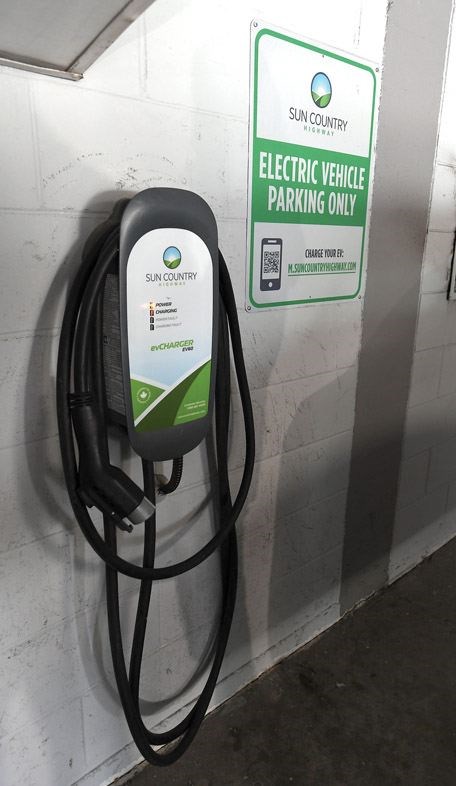Delegates from the Community Energy Association will be seeking city council's support on Monday to plan and build electric vehicle charging infrastructure on Highways 16 and 97 from Kamloops to Haida Gwaii.
Public charging stations are sparse along the 1,240 kilometres of highway north of Kamloops. The nearest Level 3, sometimes also known as DC fast chargers or DCFC, stations are in Kamloops and Spences Bridge, south of Ashcroft, according to a map of public charging stations provided by chargehub.com. Level 3 stations can charge a typical electric vehicle battery from empty to full in 20 to 60 minutes.
Slower Level 2 public charging stations, capable of charging a vehicle from empty to full in three to eight hours, are available in Cache Creek, Williams Lake, Quesnel, Prince George, Burns Lake, Houston, Terrace and Kitimat.
In Prince George, public Level 2 stations are available at the Coast Inn of the North (770 Brunswick St.), Nedco Prince George (3596 Massey Dr.) and UNBC's parking lot B (3333 University Way).
Distances between charging stations on Highways 16 and 97 are more than 200 km in several cases, outside the range of many electric vehicles on the market in Canada today, and no public charging stations are available west of Terrace. By comparison, a 1,300 km stretch of highway in the Kootenay region has 13 Level 3 and 40 Level 2 stations.
Charging a typical electric vehicle using a standard outlet, the last resort for electric vehicle operators, can take eight to 15 hours according to chargehub.com.
The Community Energy Association is hoping to create the plan this year, and install the charging stations over the next three years.
The association is seeking $9,000 each from the five regional districts along the Highway 16/97 corridor and will apply to a grant from the Federation of Canadian Municipalities to complete the planning phase. The association estimates the final capital cost to build the charge station network will be $2 million.
Pilot electric vehicle program continues
In 2012 the city, Regional District of Fraser-Fort George, UNBC and Northern Health partnered to purchase a Nissan Leaf electric vehicle and build three Level 2 charging stations at a combined cost of $58,000. The four partners share the use of the vehicle
City engineer Adam Homes said the program has been successful, even in the coldest weather.
"Typically what happens with the Nissan... is it'll go about 100 km per charge," Homes said.
When the weather drops below -20 C, or gets especially hot, the effective range can drop to 50 km per charge, he said. The charging stations have proven reliable in all weather conditions, Homes added.
"On average, for our light-duty fleet, we're doing 25 km per day, so that works for us. It's doing errands back and forth from city hall to the (city works) yard," he said. "We are looking at getting another electric vehicle. This one would be a full-time city vehicle, so we can gather more information on it."
Homes said the next generation of electric cars have more range, which would allow city staff to expand its use to include field work.



